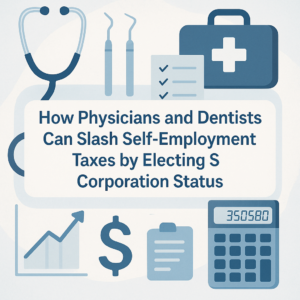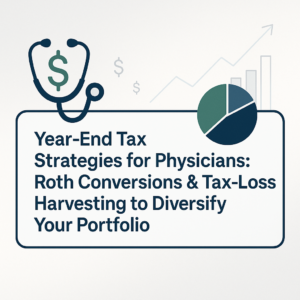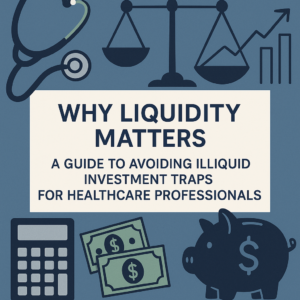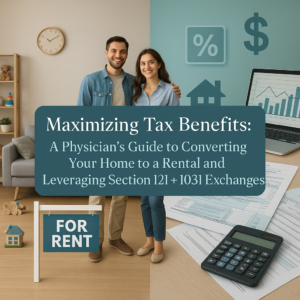Mastering Car Lease Negotiations: Leasing vs. Buying a Car
Leasing a car can be an attractive option if you prefer driving new vehicles with the latest features. For busy professionals like young healthcare workers—including doctors, dentists, pharmacists, and physical therapists—navigating the financial details of a car lease might seem overwhelming. Additionally, the choice between leasing and buying a car is a significant financial decision that can shape your situation for years to come. This comprehensive guide aims to simplify the complexities of car leasing versus buying and provide strategies to master car lease negotiations.
Leasing vs. Buying: An Overview
Before diving into negotiation tactics, it’s essential to understand the fundamental differences between leasing and buying a car.
Leasing a Car
Pros:
- Generally lower monthly payments.
- Smaller upfront costs.
- Ability to drive a new car every few years.
- Less concern about maintenance, as the car is usually under warranty.
Cons:
- You don’t own the car at the end of the lease.
- Limited mileage with potential extra costs for exceeding limits.
- Restrictions on customizing the car.
- Costs can accumulate if you continue to lease.
Buying a Car
Pros:
- The car is yours after payments end.
- Unlimited mileage with no penalties.
- Freedom to customize your car.
- Potential for long-term savings.
Cons:
- Higher upfront and monthly payments.
- Responsible for maintenance as the car ages.
- The car’s value depreciates over time.
Understanding Lease Components
If you decide that leasing aligns with your needs, understanding the key components of a car lease is crucial. Knowledge of these elements will empower you to negotiate effectively.
Salvage Value (Residual Value)
The salvage value, or residual value, is the estimated worth of the car at the end of the lease term. It significantly affects your monthly lease payments. A higher residual value generally leads to lower monthly payments.
For example, if a car worth $30,000 has a residual value of $15,000 after a three-year lease, you’re paying for the $15,000 depreciation over the lease period. If the residual value increases to $18,000, you’re only paying for $12,000 of depreciation, reducing your monthly payment.
Implied Interest Rate (Money Factor)
The implied interest rate, often called the money factor, is the cost of financing your lease. It’s a critical component that affects your total lease cost. While it may be presented as a small decimal (e.g., 0.002), you can convert it to an annual percentage rate (APR) by multiplying it by 2400. For example, a money factor of 0.002 equals a 4.8% APR.
Negotiating a lower money factor can reduce your monthly payments. If you have a strong credit score, leverage it to secure a lower interest rate, potentially saving a significant amount over the lease term.
Dealer Fees and Charges
Dealer fees and additional charges can vary widely and often add to the cost of your lease. These might include acquisition fees, disposition fees, and administrative charges. While some fees are non-negotiable, others might be flexible. Being aware of these charges and negotiating them can reduce your overall lease cost.
Effective Negotiation Tactics
Negotiating your car lease terms can significantly impact your monthly payments and overall financial well-being. Here are some key tactics to help you negotiate a lower monthly payment:
Research and Preparation
Conduct thorough research on the car you’re interested in. Understand its market value, residual value, and current lease offers. Utilize online resources, dealership websites, and lease comparison tools to gather relevant information. Knowledge of the dealer’s inventory, end-of-month quotas, and sales targets can provide leverage.
Here are some reputable online resources and tools:
- Edmunds: Offers detailed car pricing and leasing information.
- Kelley Blue Book: Provides car values and lease calculators.
- Leasehackr: A forum and calculator for lease deals and tips.
Timing Your Negotiation
The timing of your negotiation can significantly impact the deal you receive. Dealerships often have monthly, quarterly, and yearly sales targets. Approaching a dealer towards the end of these periods can increase your chances of securing a better deal, as sales personnel may be more motivated to meet their quotas.
Crafting a Compelling Proposal
When presenting your offer, be specific and clear about your requirements. For example:
“I’m happy to sign the lease for $1,000 down and $470 per month. I understand we’re currently at $510 per month. If you can adjust the salvage value, implied interest rate, or lower the dealer fees by a few hundred dollars, I believe we can reach $470 per month. If you can do that, I’ll sign the lease tomorrow and pick up the car.”
A well-crafted proposal demonstrates that you’ve done your homework and are serious about closing the deal.
Leveraging Dealer’s Flexibility
Dealers have some flexibility in adjusting lease components. Focus on:
- Residual Value: Negotiate for a higher residual value to lower your monthly payments.
- Money Factor: If your credit score is strong, push for a lower money factor or implied interest rate.
- Dealer Fees: Request the reduction or elimination of certain fees, such as documentation or administrative charges.
Exploring Multiple Dealerships
Don’t limit your negotiations to a single dealership. Obtain lease quotes from multiple dealers and use them as leverage in your negotiations. Let dealers know that you’re considering other offers, which can create a competitive environment and encourage better deals.
The Psychology of Negotiation
Understanding the psychology behind negotiation can give you a significant advantage. Here are some tips:
Patience
Don’t rush the negotiation process. Take your time to consider all offers and counteroffers. Patience can often lead to better terms.
Building Rapport
Establish a positive relationship with the salesperson. People are more likely to make concessions for those they like and trust. Be courteous and professional throughout your interactions.
Understanding the Salesperson’s Perspective
Recognize that salespeople have their own quotas and targets. Understanding their pressures can help you negotiate more effectively and find a mutually beneficial agreement.
What Not to Do During Negotiations
Avoid these common pitfalls during your negotiations:
Never Accept the First Offer
Always counter the initial offer. Dealerships typically start with a higher price expecting negotiations. By countering, you open the door to better terms.
Avoid Emotional Decisions
Stay calm and composed throughout the negotiation process. Emotional decisions can lead to unfavorable terms and regret later on.
Don’t Focus Solely on Monthly Payments
Consider the overall cost of the lease, including down payments, fees, and potential penalties. A low monthly payment may be offset by high upfront costs or unfavorable lease terms.
Long-Term Financial Considerations
While leasing offers short-term savings and flexibility, it’s important to consider your long-term financial goals:
- Accumulated Costs: Over time, continuously leasing cars can become more expensive than purchasing a vehicle and keeping it long-term.
- Equity Ownership: Buying a car means you build equity in an asset, even as it depreciates, whereas leasing does not offer this benefit.
- Customization and Ownership Benefits: Owning your car allows you to customize it and use it without restrictions, potentially saving money on mileage fees and wear-and-tear charges.
Making Your Decision
Choosing between leasing and buying a car involves balancing cost considerations with personal preferences and future plans:
- Budget: Assess whether you can handle higher upfront costs associated with purchasing, or if lower monthly payments of leasing are more manageable.
- Driving Habits: Evaluate your typical annual mileage to determine if leasing’s mileage caps are suitable for you.
- Ownership Goals: Decide if long-term ownership and the freedom it brings align with your lifestyle and financial objectives.
Conclusion: Navigating Your Path to a New Car
Car lease negotiations may seem complex, but with proper preparation and strategic approaches, you can secure a favorable deal. Whether you choose to lease or buy, understanding lease components such as salvage value, implied interest rates, and dealer fees empowers you to make informed decisions. By researching, timing your negotiation, and leveraging dealer flexibility, you can significantly reduce your monthly lease payments or purchase price, aligning your decision with your financial goals.
At Mainstay Capital, we are here to help guide you through these choices, providing customized financial advice suited to your lifestyle. Please contact us to discuss how we can assist you in making the best decision for your situation.
Disclaimer: This content is for informational purposes only and should not be considered personal financial advice. Always consult a qualified financial advisor before making significant financial decisions.






